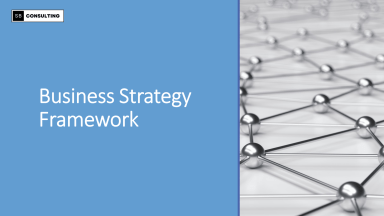
Last version published: 26/07/2023 08:42
Publication number: ELQ-14749-3
View all versions & Certificate

Business Strategy Framework
Get a complete overview of all the tools MBB Consultants work with.
Further information
Gain an understanding of the essential concepts and principles involved in strategic planning.
Explain the eight-step process of strategic planning, as well as the primary frameworks and tools used in the process.
Identify the critical factors necessary for achieving success in strategic planning.
































